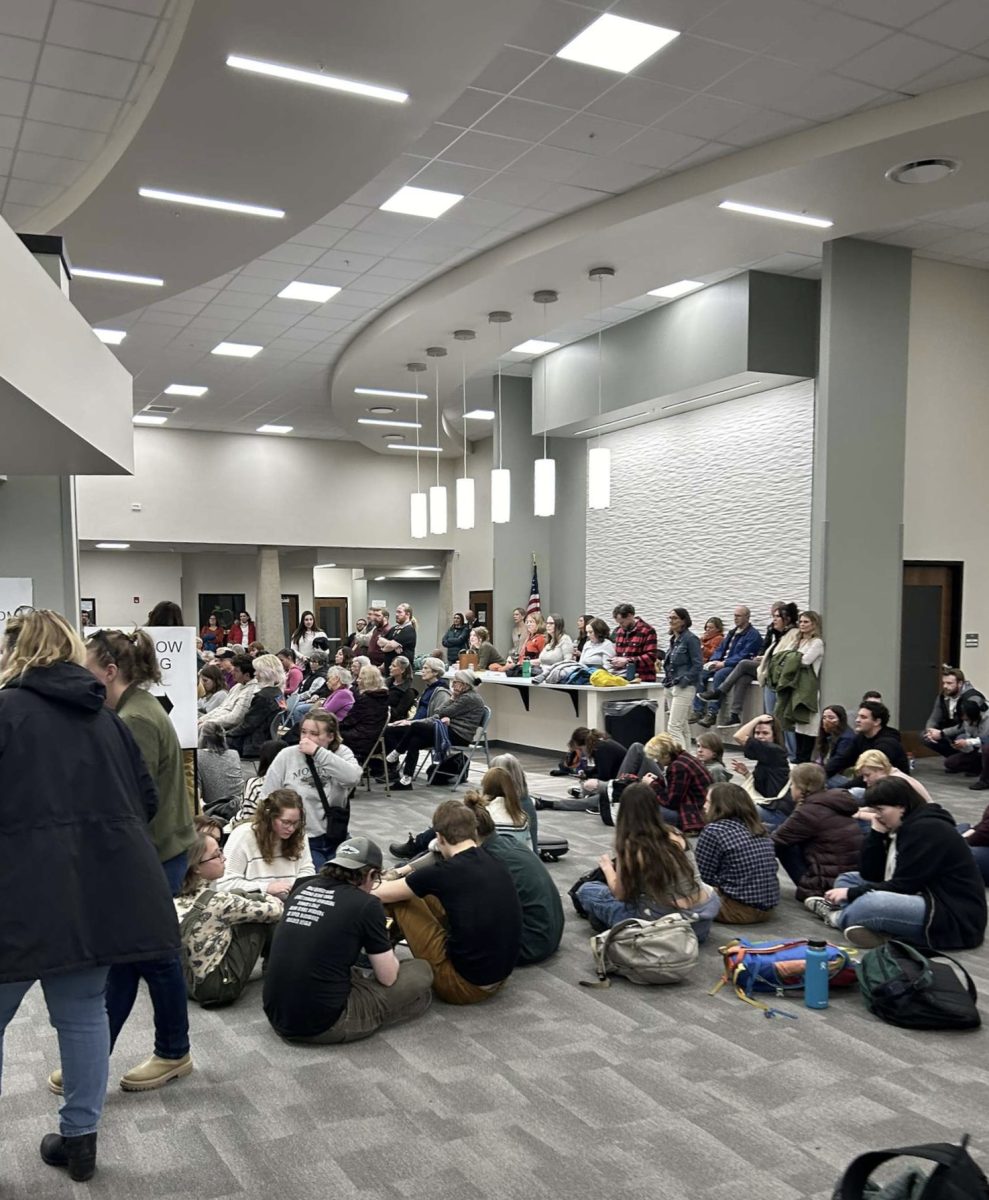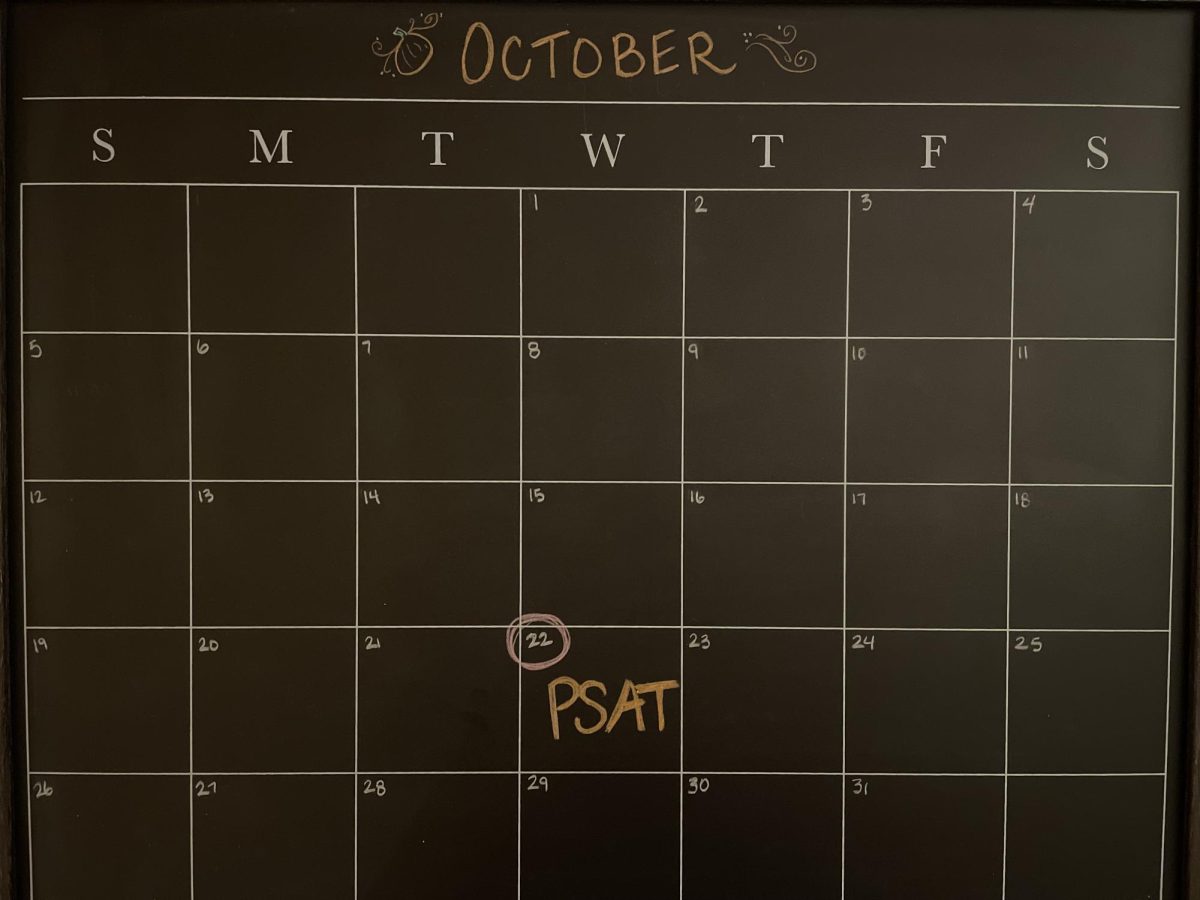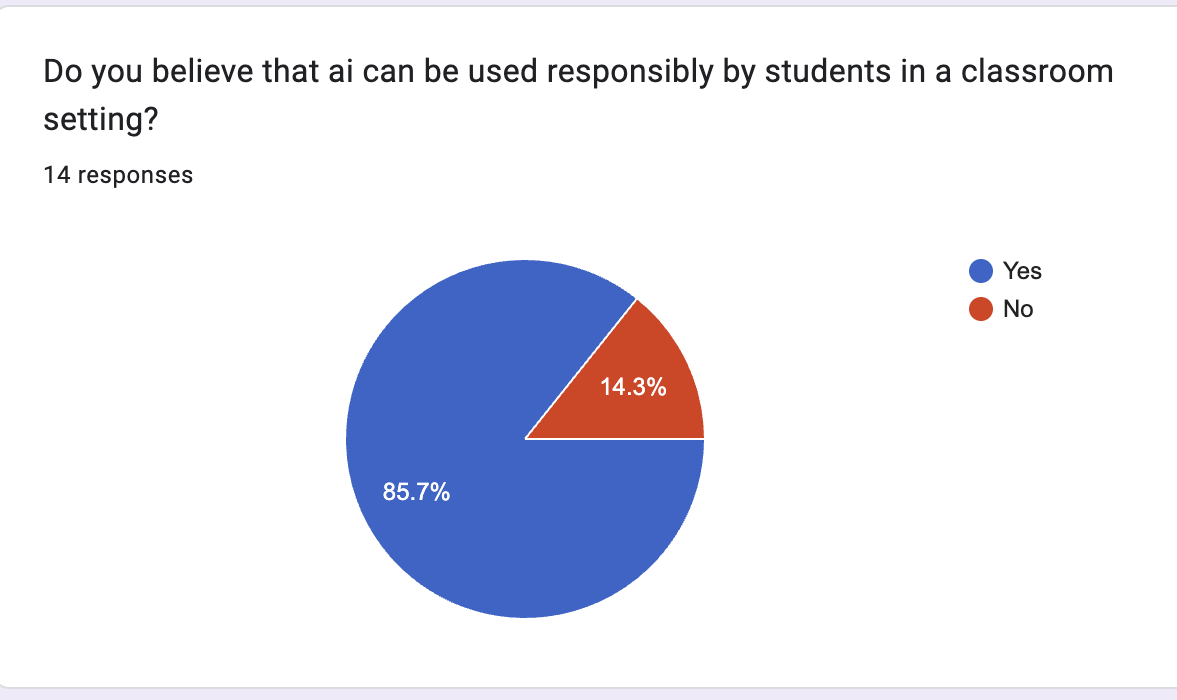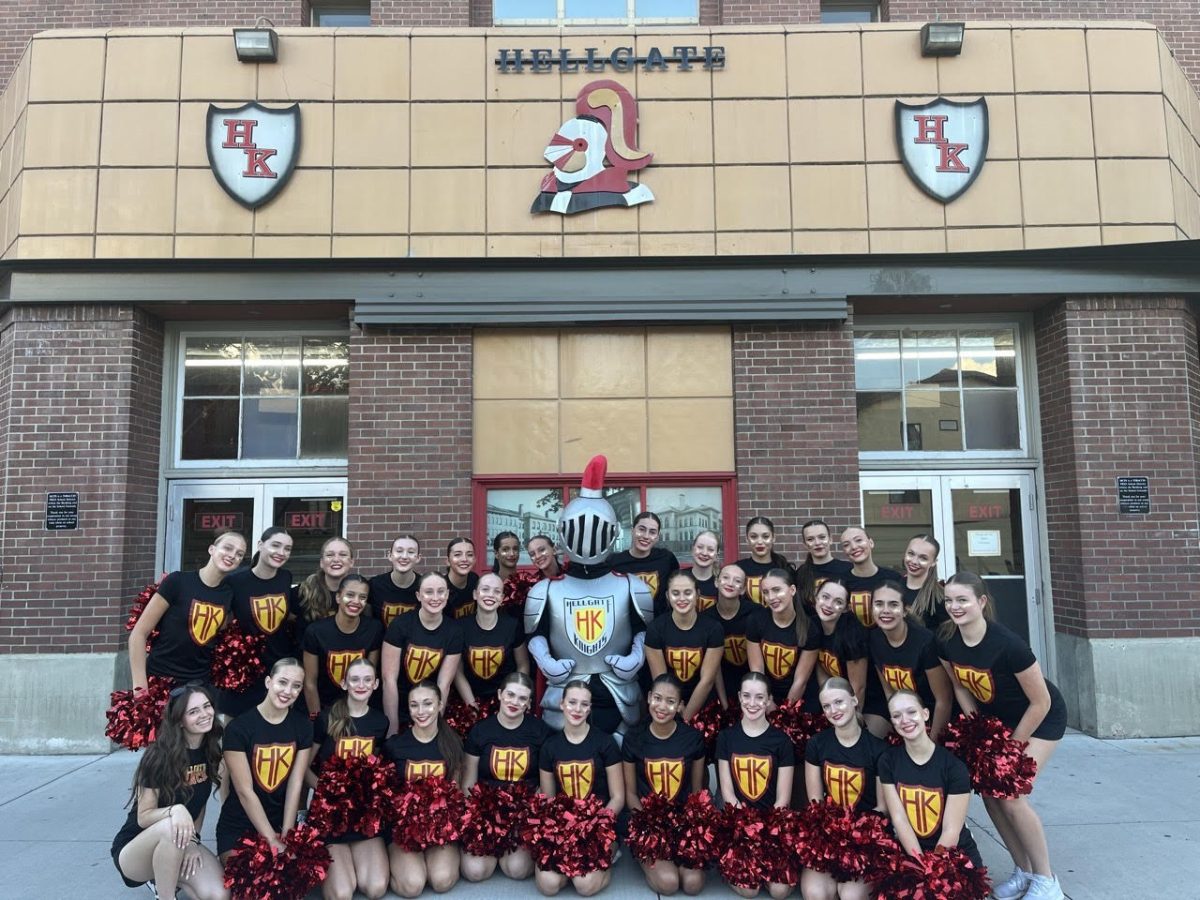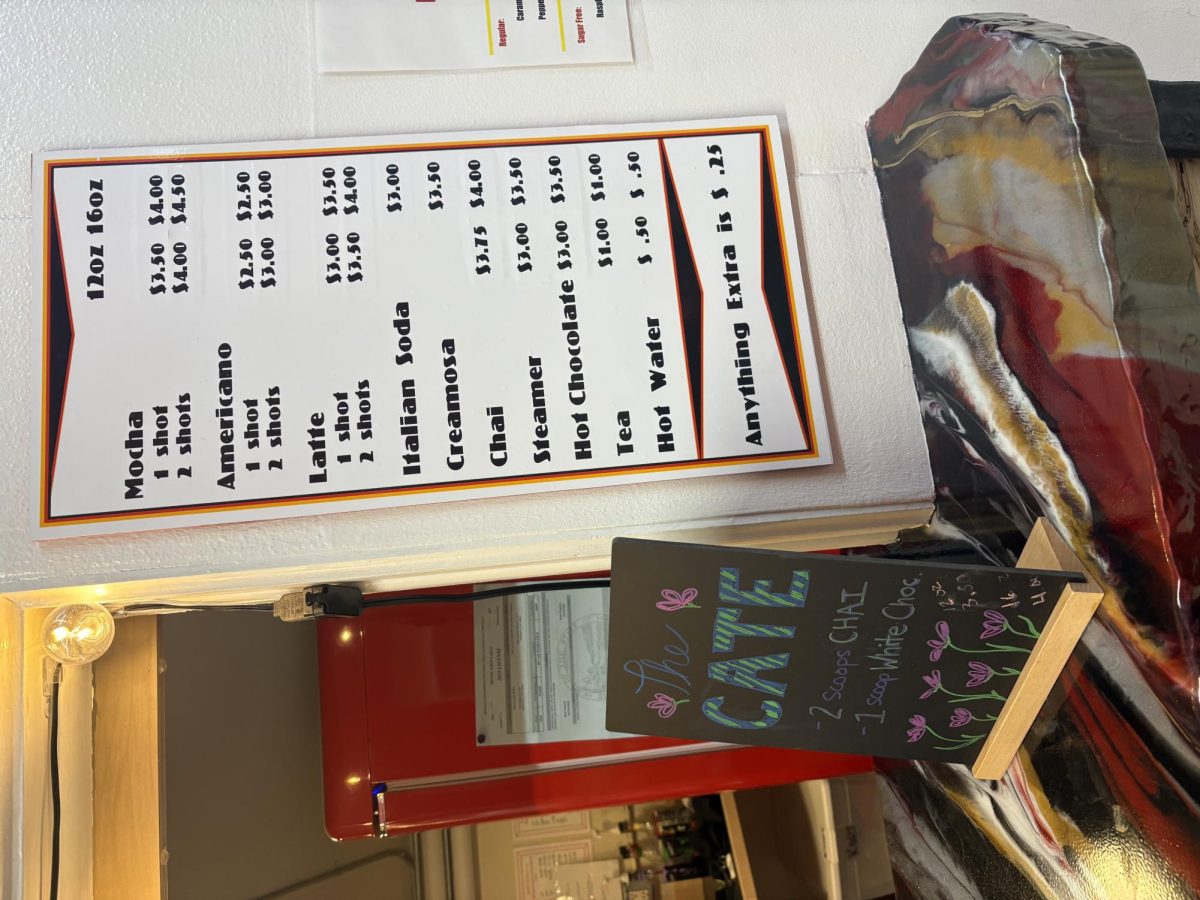An eight million dollar budget cut proposal drew in crowds to the MCPS board meeting on Feb. 13, as students, teachers, and Missoula community members arrived to offer public comment. The mass budget cuts pushed through during the meeting would remove several administrative positions such as the fine arts director as well as lead to teacher layoffs. After extensive public comment and deliberation lasting over five hours, the meeting concluded that over 100 positions, MCPS wide, will be up for cuts in the 2024-2025 school year.
The cuts pushed forward on Feb. 13 are some of the worst cuts that the district has seen in years. “This type of reduction hasn’t happened since 2004,” said first-year District Superintendent, Micah Hill.
Hellgate Principal Judson Miller is a member of the district budget committee, one of the few principal representatives. “This was a worst case scenario proposal, from the superintendent, to meet what is an eight million dollar shortfall,” said Miller. After the conclusion was reached that numerous positions within MCPS would be cut as a result, the gravity of the new budget became evident.
With a lack of administration in the coming years, Hill said that absorbing the extra responsibility will fall on the teachers. “Teachers and principals end up becoming jacks-of-all-trades instead of focused specialists. The ship may keep moving with reduced crew, but not necessarily in the right direction or with great efficiency. The building administration and teachers will bear the burden of making up for the missing leadership, coordination, and support,” Hill said. “Without question, our students and staff will feel the impact of these cuts.”
A large point of contention from the board meeting, which resulted in many hours of public comment, was the proposed removal of the fine arts director position. With a target seemingly placed on the art departments, many students and arts educators from around Missoula were enraged at the cuts being focused on the arts.
Jesse Dochnahl, Hellgate band teacher, said the impact of the cuts was a shock. “From the perspective of a high school band teacher, I was relatively surprised. I didn’t realize that the arts director position was at risk, because the arts director did not know that the position was at risk.” Dochnal also highlighted how there was seemingly little conversation between current fine arts director, Monte Grise, and administration.
Hill said that the decision as a board came from the lack of options for places to go. “The board has a legal obligation as elected officials to propose and adopt a balanced budget. With the decline in enrollment, the rising inflationary costs for utilities, property, and liability insurance and paying for current staffing obligations, the board has no choice but to trim from the existing budget,” he said.
“Sometimes difficult decisions need to be made, but what I try to remind everybody is that these are always a forced choice. If it wasn’t the fine arts director, it would have been something else,” said Miller.
Hill said that he doesn’t see the fine arts as being a specific victim of the cuts as many other departments faced reductions. “There was a lot of public comment and media coverage about the arts being ‘targeted’ or identified for cuts, but the reality is that from the general fund, the only position that was recommended for reduction was the Fine Arts Director position,” he said. Hill also emphasized the fact that the arts director will not be the only administrative position taking the brunt of the cuts as several other director positions are seeing cuts next year as well along with non-tenured teachers.
Miller wants to work to try to minimize the visible changes within Hellgate specifically for the coming years, pointing out that the loss of the arts director was also a choice to keep teachers in classrooms. “One of those positions was the fine arts director. And yes, it went away, but the flipside of that was that we were able to keep fine arts instructors, as a trade off,” said Miller. “It would have been instructional staff. Faces that kids knew differently.” In total, about fourteen positions at the administrative level will face cuts with all non-tenured teachers facing layoffs.
Dochnahl said that the arts director plays major roles within the department and the programs will feel the loss. “The arts director coordinates all fine arts, music, and theater courses for K-8 especially and he is a big proponent for high school teachers and courses as well,” he said. The work from the arts director will be directly placed on the teachers next year, Dochnahl said, “It goes to me. It goes to Mr. Davis, it goes to Mrs. McKenzie, it goes to the high school teachers.”
With the loss of advocacy from the arts director for the programs and the increased workload for teachers, Dochnahl anticipates things such as trips and travel to potentially go away. “We suspect that we might have to drop some opportunities, just to be able to teach,” he said. “The risk is that we start losing festivals. Those extra opportunities for kids that are really into music. And even things like marching band and pep band. Right now it seems infeasible to try to do all of that together. So maybe we have to do a lot less games with the pep band, and that would be sad for the community.”
With the need to make up for an eight million dollar budget alteration, the board pushed for numerous cuts. Specifically, the board suggested cuts for the arts and special education directors, CTE, community service, student service, and work co-op coordinators, as well as library staffing and services, and assistant principals in the middle schools. Along with these, non-tenured teachers are also at risk for layoffs in the coming year. “Everybody in the school district I think is feeling [it]. This budget cut is gonna hurt everyone,” said Dochnahl.
The large scale of the budget cuts forced the district into layoffs, Miller highlighted. “The most expensive thing that we have in our district are people,” said Miller. Hill said, “Essentially, cutting back central administration doesn’t eliminate the need for their job functions – it just decentralizes them.”
According to Hill, the layoffs that will be faced next year will not come easily. “We educate children and it takes caring, compassionate, educated staff to do that work – telling 100+ employees that you no longer have a job is incredibly difficult because we care about them,” he said. “There isn’t one member of our staff, no matter what the job is that they have in the district that isn’t important and those are what I have to take into account when making recommendations.”
Hellgate is known for its arts programs, and the thought of losing them was a shock to many students. However, Miller emphasized that the Hellgate art program will still remain strong. “I don’t want to minimize the work of the fine arts director, that work has to go somewhere, but I chose Hellgate partly because of our arts programs. I meet with our art and music teachers on a regular basis, they are the reason that our school is so amazing. And so for us, I want to try to minimize monetary cuts, or people cuts, at the building level,” said Miller.
The budget cuts for the MCPS district is a combined result of the ending of grants from Covid, along with a loss in enrollment in the lower grades. “The eight million dollars comes from two areas. One area we’ve known about, and that’s that ESSER money that they were talking about. That was a grant from the federal government from Covid that had a definitive ending so this is the last year for that grant,” said Miller. “Our revenue didn’t go up enough to be able to absorb those costs.” The money from the Covid grants accounted for around five million dollars that the district was unable to compensate for going forward. The remaining money comes from the drop in enrollment in the elementary schools. “That currently supports and pays for approximately 75 staff positions,” said Hill.
Despite the end of the ESSER funding, Dochnahl still feels saddened to see positions go that have existed for years at MCPS. “What is a little sad for us is that a lot of these cuts come from the ESSER funding that is disappearing…but the arts director position has been there for almost 50 years,” said Dochnahl.
A large portion of community members demonstrating and showing up for public comment on Feb. 13 were Hellgate students. The arts being a large part of the Hellgate community led students to rally around their teachers. “I love it,” said Miller. “I was there for the whole thing pretty intentionally. I think it’s incredible. I want to reiterate, we’re here for the same purpose. The arts are such an important part of Hellgate specifically, and so I love that Hellgate students are super passionate about that,” he said.
Many students from Dochnahl’s music class showed up as well to offer public comment. “It means a lot to me to see students stick up for anything,” said Dochnahl. “Whenever students stick up for something that means a lot to them. Not just for them but for the future, for people that get to follow in their footsteps, I think that’s the bright side of the whole thing.” Students along with writing letters to administration, spoke at the board meeting, offering student perspectives.
Miller said that looking into next year, he hopes to have as little change as possible within the school. “Moving forward we’re working to make sure that our programs grow. We’re actually–at Hellgate–we’re actually up in enrollment next year. So I’m looking to make sure our programs expand, the kids get what they need, those types of things,” said Miller. “I’m committed to our art and music programs.”
Miller emphasized that whatever can be done to avoid major changes to student life will be done. “I think what we all try to do is preserve your–as a student–experience.” However, next year will undoubtedly look different as far as staffing and programs.
Dochnahl is prepared to work to try to preserve as much of the music and art program as possible. “[Art] helps provide so many opportunities for kids to listen more attentively, to work in more creative and collaborative ways, to align with other people, while at the same time being individual and unique,” he said. “It mostly just brings joy.”

